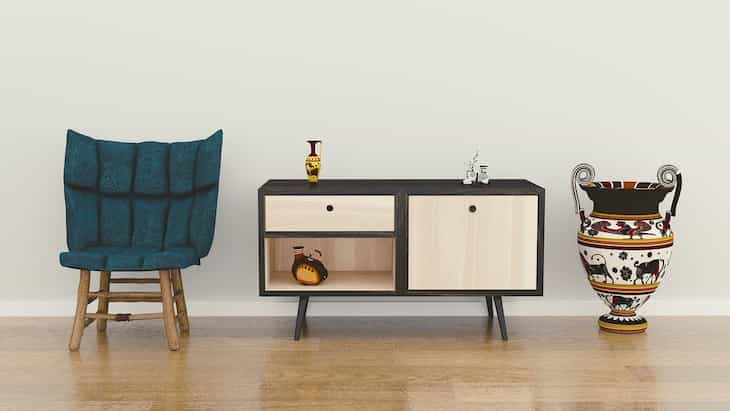Interior designers can be quite creative and original in their projects, but they still have some rules and tips that help them create coherent and good-looking designs.
For example, most designers use the rule of three when adding various decorations and grouping objects.
Let's find out more about how it works.

Grouping Decor Items
When decorating shelves, tabletops, or any display area, consider arranging items in threes.
For instance, you might place three vases of varying heights or three decorative objects with different shapes to create a visually appealing composition.
Wall Decor
Applying the rule of three to wall decor involves arranging artworks or framed items in groups of three.
You might hang three framed pictures side by side or create a vertical stack of three framed pieces.
This arrangement tends to be more aesthetically pleasing than an even number of items.
Color Palette
In terms of color selection, the rule of three can be applied by choosing a primary color and two supporting colors.
This creates a cohesive color palette that ties the elements of a room together.
For example, you might have a dominant color for walls, a secondary color for furniture, and an accent color for accessories.
Furniture Arrangement
When arranging furniture, consider the rule of three to create a balanced and visually appealing layout.
Instead of having all furniture lined up against a wall, you might place three main pieces – like a sofa and two chairs – to form a conversational grouping in the center of the room.
Lighting
In lighting design, the rule of three can be applied by incorporating various light sources.
Instead of relying solely on overhead lighting, use a combination of ambient, task, and accent lighting.
This trio of lighting types adds depth and warmth to a room.
Previously, we talked about preparing your house for renting out.












